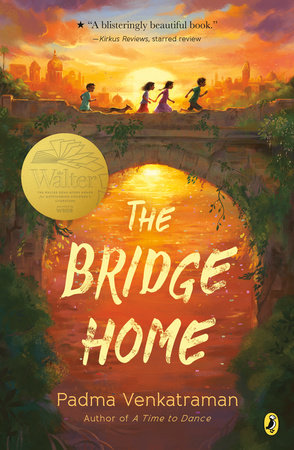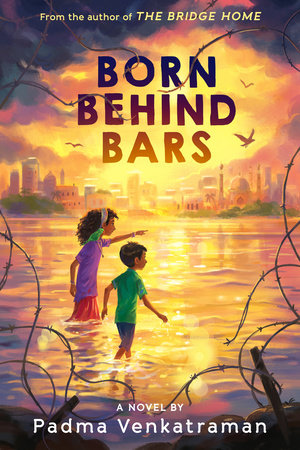Padma Venkatraman is an award winning, Indian American author of middle grade and young adult fiction. I’ve always enjoyed reading her work and have developed such an appreciation for the way she incorporates spiritual development into her characters. Padma has advocated for more space on shelves for books with contemporary, diverse stories and less for classics that often contain messages of imperialism and anti-Blackness.
.
Padma, how are you doing?
I feel grateful for all the love I have in my life, although I am sad to see so much hate still in the world after a millennium of human existence on this beautiful Earth.
You began your professional career as an oceanographer. What attracted you to that field? Do you miss it?
I was very concerned by global warming and pollution even as a kid and I saw it as intrinsically connected with human survival. I became an oceanographer to help our human family and this planet which is our home. In the past few years I’ve wondered if I made the right decision to switch careers or if oceanography satisfies a more urgent need.
It seems you’re someone who enjoys exploring the world, sometimes through science and at other times through literature. What do you find when you’re writing?
In writing I discover my personal connection with compassion. I suppose it is the time I feel closest to God. So I suppose I am ultimately glad I switched because I think I can do the most good for others through my words rather than if I were still in the world of numbers.
Do you think children’s books are so often challenged or banned because we value children here in the U.S. or because we don’t?
I think we all want to protect our children but we have different ideas about what’s good for them. At the end of the day we would all agree that extreme violence or explicit sex is not great for kids and that some things aren’t age appropriate.
But the spate of challenges we’ve seen recently goes well beyond such discussions. It no longer seems to be about protecting my own child, it’s about erasing non-white / non-cis-gendered voices, which stems from fear that’s rooted in racism and gives rise to violent hatred. Start by erasing some people’s stories and who knows if you won’t end by trying to erase their lives?
Every child has more than a mere right to exist. Every child has a right to respect.
If we value children, we need to respect them – all of them – equally. We need to embrace and celebrate children of all genders, races, ethnicities and religions. We need to be interested in truly listening to their varied stories.
One of the silliest things about the current attitude to book banning is that it ignores the hyper-sexualized graphically violent images that are freely available to our children on the internet. Instead, the focus is on getting rid of important literary creations that could help children gain confidence in themselves, regardless of who they are.
How does having your own books being challenged affect your resolve to write?
I need to clarify that my own books haven’t been on any challenged lists that I know of. However, what I’ve faced is being the target of cyber-bullying attacks because I questioned the place of the “classics” in our classrooms. Interestingly, I am against banning and explicitly stated several times that I am against banning classics – but it’s important to me that we expand our curricula to include underrepresented and marginalized voices and that we view classics through a critical lens and discuss our hate-filled yesterdays with honesty. If we don’t how on earth are we supposed to build a hate-free tomorrow?
So anyway, I don’t want to overstate the case. But along with the cyberbullying came some claims that some people would be getting rid of my books – and also, way before this, when I wrote Island’s End (2011), I felt there was a lot of silent censorship. The book features people with Black skin in India and who have a different religion. Teachers repeatedly told me they loved the book but they couldn’t have it on their shelves because it was “voodoo” and so on. So I think there were quite a few people pulling the book off shelves. Even though it was released to starred reviews in four journals, won the South Asia Book award, and was on numerous lists, it is now out of print!
All this saddens me. I have thought, repeatedly, of throwing in the towel. But then I get a message from a reader – such as the one I received just yesterday – showing me how many children value my work, reminding me that so many children who were in unsafe situations have moved to safer ones after reading some of my books, and all this – well, it makes me get right back on the horse.
These book challenges don’t exist in isolation. They’re part of misinformation campaigns that are able to exist because we’re told we can’t talk to each other anymore. There’s so much fear and mistrust. What one small thing can we all do to make a difference?
Keep reaching out, passionately but peacefully. Keep speaking up, calmly and with confidence. But that’s not enough. What’s most needed: Coming together as a community to take urgently-needed and targeted action and planning peaceful but effective counterattacks is vital. Margarita Engle shared with me a really concrete idea – we need to get celebrities on our side. Celebrities with an interest in books can really make a difference at a national level because they have power and money – and in this battle, we could certainly use both.
Padma, thank you for bringing compassion and wisdom to this conversation.



